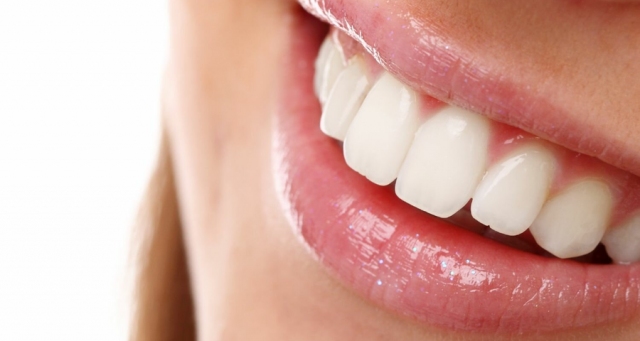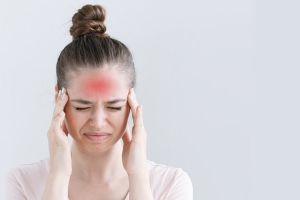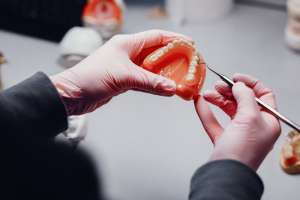Temporomandibular joint disorder (TMJ) and teeth grinding, or bruxism, are closely linked conditions that can significantly impact oral health and quality of life. If you're seeking Teeth Grinding Treatment in Dubai, understanding how TMJ plays a role in this condition is essential for effective management. This article explores the connection between TMJ and teeth grinding, highlights symptoms, and discusses treatment approaches to address both issues comprehensively.
What Is TMJ and How Is It Related to Teeth Grinding?:
The temporomandibular joint (TMJ) connects the jawbone to the skull and allows for smooth jaw movement. TMJ disorders occur when this joint or surrounding muscles become inflamed or dysfunctional.
-
TMJ dysfunction often results from repetitive stress, such as teeth grinding or jaw clenching
-
Bruxism places excessive pressure on the TMJ, leading to pain, inflammation, and restricted movement
-
TMJ issues can exacerbate grinding habits due to discomfort or muscle imbalance
-
Both conditions share common symptoms including jaw pain, headaches, and earaches
-
Effective treatment requires addressing the root causes of both TMJ disorder and bruxism
Understanding this relationship is key to achieving lasting relief.
Common Symptoms Indicating TMJ and Teeth Grinding Issues:
Recognizing overlapping symptoms can help you determine when to seek professional help for both conditions.
-
Persistent jaw pain or tenderness around the TMJ area
-
Grinding or clicking sounds when opening or closing the mouth
-
Frequent headaches or migraines, especially near the temples
-
Ear pain or a sensation of fullness without infection
-
Worn, cracked, or sensitive teeth caused by grinding
-
Limited jaw movement or locking of the jaw during chewing or speaking
Early identification allows for prompt intervention to prevent further complications.
Diagnosing TMJ in Patients with Bruxism:
A thorough diagnosis is critical for designing an effective treatment plan addressing both TMJ and teeth grinding.
-
Clinical examination of jaw movement and joint function by a dental specialist
-
Evaluation of dental wear patterns indicating bruxism severity
-
Imaging studies such as X-rays or MRIs to assess joint structure and inflammation
-
Patient history including pain description, sleep habits, and stress levels
-
Referral to a TMJ specialist or oral surgeon if advanced issues are suspected
Proper diagnosis is the first step toward personalized and effective Teeth Grinding Treatment in Dubai.
Treatment Options for TMJ-Related Teeth Grinding:
Managing TMJ disorder alongside bruxism requires a multi-faceted approach tailored to each patient's needs.
-
Custom-fitted nightguards to protect teeth and reduce joint strain during sleep
-
Physical therapy focusing on jaw exercises and muscle relaxation techniques
-
Stress reduction strategies including meditation, counseling, or lifestyle adjustments
-
Anti-inflammatory medications or muscle relaxants for short-term pain relief
-
Advanced interventions such as Botox injections or surgery in severe cases
Combining these treatments can relieve symptoms and prevent further damage to the TMJ and teeth.
Preventative Measures to Reduce TMJ and Bruxism Symptoms:
Taking proactive steps can significantly lessen the impact of TMJ and teeth grinding on daily life.
-
Avoid chewing gum or hard foods that stress the jaw joint
-
Maintain good posture, especially when working at desks or using electronic devices
-
Practice relaxation techniques to manage stress and reduce jaw clenching
-
Use warm compresses to soothe jaw muscles and improve circulation
-
Follow a consistent sleep schedule to support restorative rest
Incorporating these habits supports the success of professional treatment plans.
When to Seek Specialized Teeth Grinding Treatment in Dubai:
Knowing when to consult dental professionals is crucial for effective management of TMJ and bruxism.
-
If you experience persistent jaw pain, headaches, or earaches alongside grinding symptoms
-
When teeth show signs of wear, sensitivity, or damage due to grinding
-
If your jaw locks or limits your ability to eat, speak, or open your mouth fully
-
When over-the-counter remedies and home care do not relieve discomfort
-
For professional assessment, diagnosis, and customized treatment options
Timely intervention by experts in Teeth Grinding Treatment in Dubai can prevent worsening symptoms and improve your quality of life.
Final Thoughts:
The connection between TMJ and teeth grinding is a critical factor in understanding and managing these often overlapping conditions. Recognizing symptoms early and seeking appropriate Teeth Grinding Treatment in Dubai ensures that both TMJ dysfunction and bruxism are effectively addressed. With a combination of professional care, lifestyle changes, and preventative measures, patients can experience significant relief, protect their oral health, and restore comfort to their daily lives. If you suspect TMJ involvement with your teeth grinding, consult a dental specialist promptly to explore the best comprehensive treatment plan tailored to your needs.






